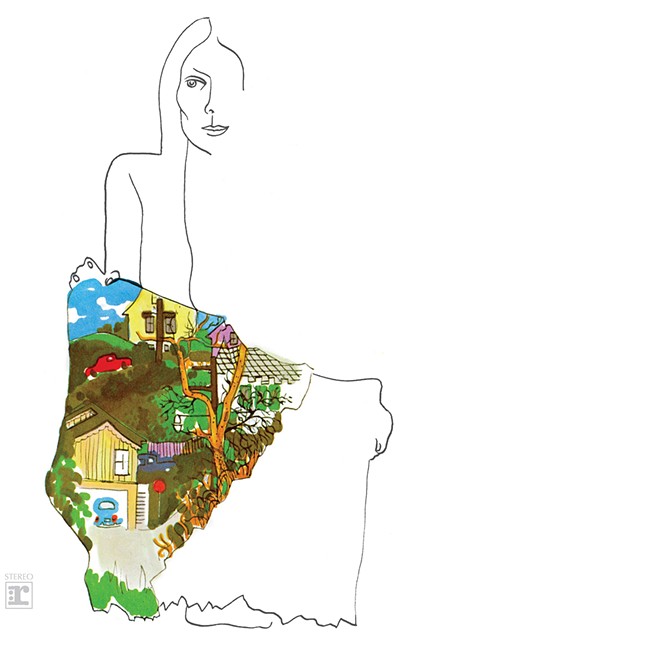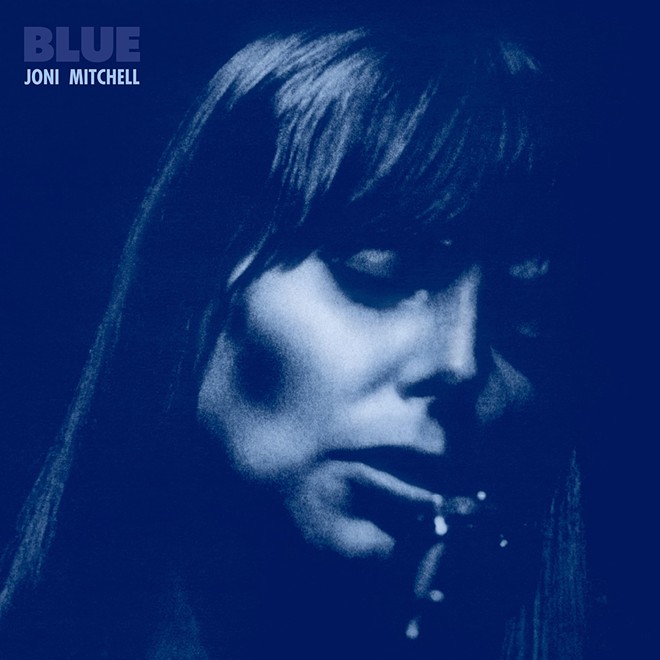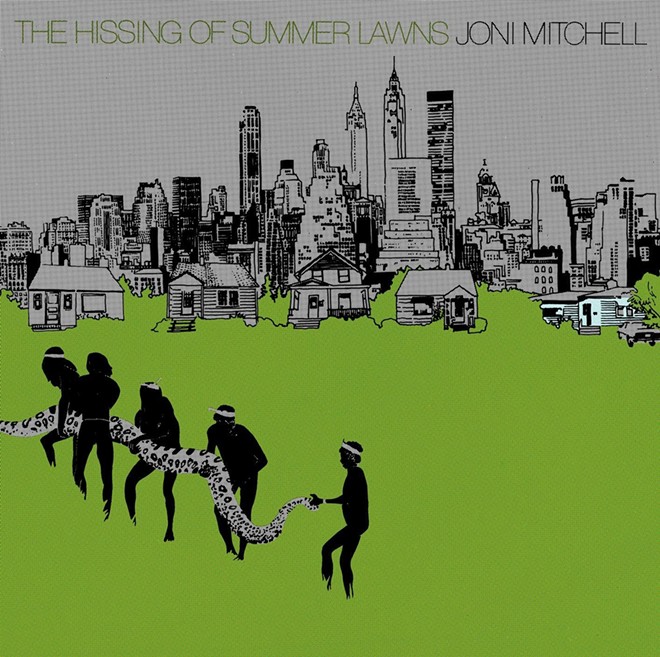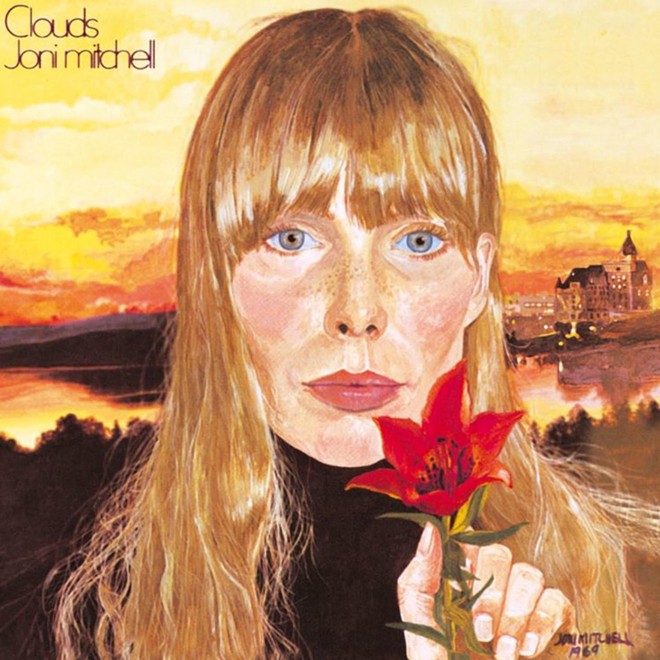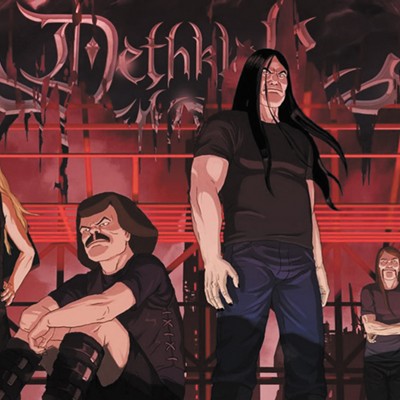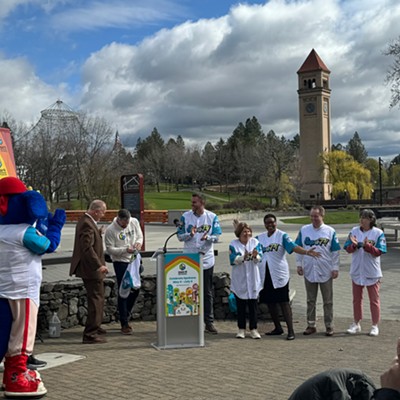Everybody has a Joni Mitchell story.
She's arcane and reckless, but over her 55-year career she's penned a song to accompany all of life's greatest moments and every bump in the road. Her poetic lyrics are infused with incredible vulnerability and openness, but there's not a hint of fragility in her voice — not once does it falter.
Though I became a fan via the music that came out of the Laurel Canyon scene in the '60s and '70s, something about Mitchell sets her far apart from her contemporaries in my mind.
She was an innovator, devising her own unique sound and style of incredibly honest confessional songwriting. Her song structures and political critiques were just as mold-breaking as those of her male counterparts of the time — Bob Dylan, James Taylor and Crosby, Stills, Nash & Young among others — perhaps even more so given she was a woman in this male-dominated realm.
During the past two decades, Mitchell's output has ceased entirely, but her influence has only grown with modern confessional singer-songwriters citing her as a major inspiration for their own works. (Taylor Swift's Red is, unsurprisingly, heavily influenced by Mitchell's Blue.)
Mitchell made a surprise return to the spotlight at the 2022 Newport Folk Festival, a stage she had not graced since 1969. Shepherded by current Americana songwriting star Brandi Carlile, it was Mitchell's first performance of any sort since 2000. On June 10, Mitchell is set to perform a sold out show with Carlile at the Gorge Amphitheater. It's Mitchell's first headlining gig in 20 years.
If you're headed to the Gorge for the show, or you're hoping to create your own Joni Mitchell story, these songs will put you on the path to understanding both her imposing presence and enigma.
WOODSTOCK
LADIES OF THE CANYON (1970)
Despite not having attended Woodstock '69, Mitchell wrote "Woodstock," which served as an anthem to that generation. At least four versions of the song were released in the same year as Mitchell's original version, the most notable of which appeared on Crosby, Stills, Nash & Young's album Déjà Vu. The CSNY version is worth listening to, but you'll never get the full story or magical feel without Mitchell's soaring notes and her unique vocal inflections. Wrapped tight in the tapestry of her lyrics, I feel like I was there on the side of the road on my way to Yasgur's farm for the legendary festival.
The opening piano riff of "Woodstock" is almost haunting, and not a sound that would usually be associated with the free love and peace movement of the late 1960s. But, if there's one thing Mitchell does well it's some good, old-fashioned sonic juxtaposition.
LITTLE GREEN
BLUE (1971)
Though the entirety of Blue is perfect from front to back, "Little Green" stands out as the most honest song in Mitchell's discography. It's the song that began my personal Joni Mitchell story.
My usual music listening habits include modern Mitchell disciples Phoebe Bridgers, Clairo and Taylor Swift, so I was in shock when I found a song even more confessional than anything in my regular rotation.
Biographer and music critic David Yaffe, the author of Reckless Daughter: A Portrait of Joni Michell, describes the song "a secret hiding in plain sight," as Mitchell is "telling all but revealing nothing." The secret? Mitchell had given her newborn daughter, Kelly Dale, up for adoption in 1965, a few years before her music took off.
"Child with a child pretending / Weary of lies you are sending home / So you sign all the papers in the family name / You're sad and you're sorry, but you're not ashamed / Little Green, have a happy ending."
It doesn't get more vulnerable than that.
HARRY'S HOUSE / CENTERPIECE
THE HISSING OF SUMMER LAWNS (1975)
Mitchell's seventh studio album, The Hissing of Summer Lawns, signified her turn to jazz music and away from the folk sound that defined her early work. It sounds like nothing she'd ever made prior to 1975. That's the point.
It was Mitchell's time to reinvent herself. The changes in her voice are evident, but the production on the tracks is entirely different and experimental. Part of being a Joni fan is rolling with the punches.
The reception of the album was initially horrible. To be honest, it wasn't my cup of tea either... that is until I spun a vinyl copy on my record player for the first time and fell in love with the dual track "Harry's House" / "Centerpiece." (As did Harry Styles, who named his third studio album after the track.) Something about the slight tactile LP crackle through the speakers mixed with a more mature voice from Mitchell will turn you into a believer. And once you see the vision, you'll feel bad for doubting Mitchell's mastery ever again.
SHINY TOYS
DOG EAT DOG (1985)
On her 1985 album Dog Eat Dog, Mitchell does what every artist in the '80s did: threw a ton of synths over every song they made. Somehow, this synth-fueled album works really well, making this a criminally underrated album (and one of my favorites) in her catalog.
This is in no small part due to the production team that featured British synthesist Thomas Dolby (of "She Blinded Me With Science" one-hit wonder fame), who had a knack for the synthpop feel that Dog Eat Dog delivers. The record's vibe makes it stand out among her discography like a neon beacon of flashing club lights.
"Shiny Toys" in particular features an addicting groove with funky guitar sprinkled throughout and lets listeners know about Mitchell's hot takes on consumer culture. A recipe for greatness, I think.
BOTH SIDES, NOW
CLOUDS (1969) & BOTH SIDES NOW (2000)
Mitchell recorded "Both Sides, Now" twice throughout her discography, once on 1969's Clouds and then again on her 2000 record Both Sides Now. (Mitchell drew the cover art for both of them.) The earlier recording features a 25-year-old Mitchell with her signature bright and bouncy vocal style while the later recording highlights Mitchell's voice at 57, aged by time, wisdom and thousands of cigarettes.
Both recordings capture the same sentiment of the duality of life, but the 2000 version brings new, deeper meaning to the song with a much older Mitchell crooning the tender lyrics: "I've looked at life from both sides now / From win and lose and still somehow / It's life's illusions I recall / I really don't know life at all." ♦


